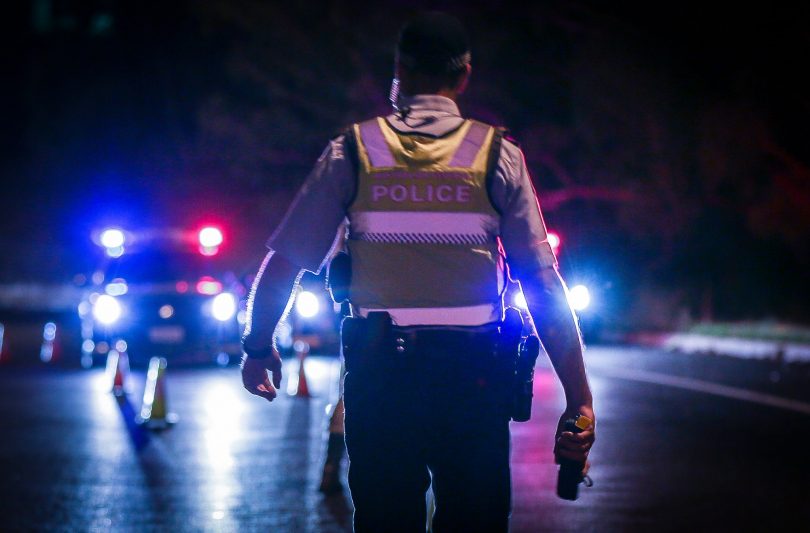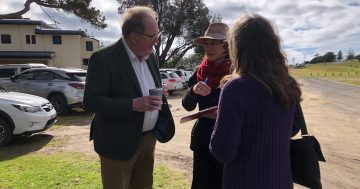
Photo: Supplied by ACT Policing.
The president of the Police Federation of Australia (PFA), the national voice of Australian police, says there needs to be a concerted national action by all government and police departments to end the scourge of mental illness in the police force.
PFA President Mark Carroll said that three police officers in Western Australia, Tasmania and Queensland committed suicide in the past fortnight, indicating mental health is widespread throughout the force.
Mr Carrol was at Parliament House on Tuesday morning (19 February) to add his voice to the ongoing Senate Enquiry into the mental health of first responders and is urging all governments and police departments to work together to make sure more is done to “protect the protectors”.
“We recognise that there is no one solution to the issue of mental health but we believe government and all police departments need to act together and not in isolation with each other,” Mr Carroll told Region Media.
“If we keep acting in isolation we will not advance any solutions at all.”
Mr Carroll said the tragic and unnecessary recent deaths of three police officers show that holding the thin blue line comes at a very significant cost.
“For simply performing their job, police officers and their families can pay a very high price: mental ill health, psychological injury and, in the worst cases, suicide,” Mr Carroll said. “The scourge of mental ill health, which destroys lives, families and careers, cannot go unaddressed.
“We need to eradicate the stigma about putting their hand up to get help,” he said. “That is part of our culture, not to be perceived as weak, and that is how people perceive mental health and they shouldn’t. We need to change decades of culture because people are getting sick and losing their lives.”
A Beyond Blue study which was released in November last year showed that suicidal thoughts are twice as common among first responders than the general population. The study also showed police and other emergency service workers are three times more likely to have some sort of suicide plan, which is a major concern for the PFA.
“The study findings should be a concern for everybody. We represent 63,000 sworn cops around the country and it is a huge concern for us,” he said.
“We are calling for all governments of all persuasions to start acting together to start harmonising workers’ compensation laws, delivering presumptive legislation, provisional acceptance of claims and let’s get the people the help and treatment that they need early and not later.”
Last year, the PFA received funding from the Federal Government to mount a national mental-health campaign on behalf of Australia’s police officers and their families.
The PFA will launch their campaign in the coming months, which will include a suite of compelling, cop-specific materials, such as awareness-raising posters and handbooks along with a compelling and powerful telemovie called Dark Blue.
“It’s important to stress that this won’t be a miracle cure, but it will start critical conversations in critical circles. Just like the rest of Australia, we need more access to more mental health professionals, more dedicated facilities and more services,” Mr Carroll said.
“Our programme tackles mental ill health and psychological injuries in policing head-on. We simply tell it like it is: now is not the time to hold back. We all need to understand what’s going on, especially our families who suffer very much too.”
If you need crisis support you can call Lifeline on 13 11 14, or the suicide callback service on 1300 659 467 for professional 24/7 telephone and online counselling. You can also seek support from Beyond Blue on 1300 224 636.
Original Article published by Lachlan Roberts on The RiotACT.










